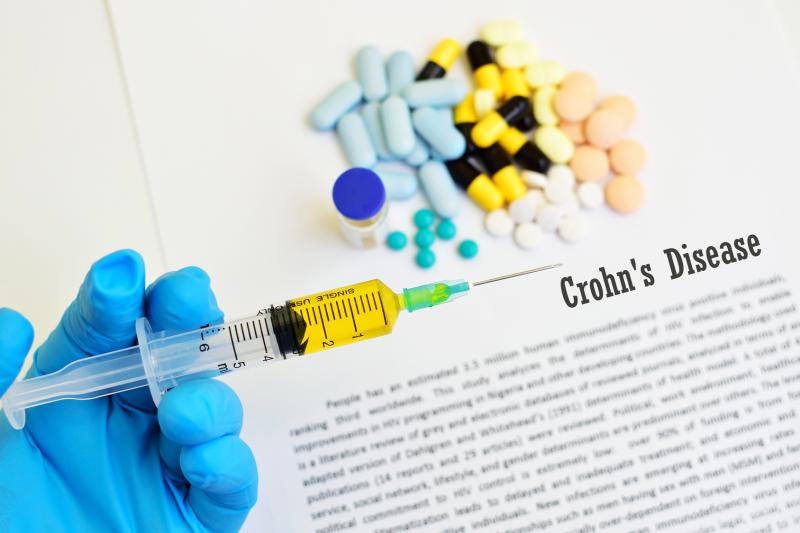Novel drug GED-0301 for active Crohn's disease disappoints in phase III trial





The novel drug mongersen (GED-0301), an oral antisense oligodeoxynucleotide directed against Smad7, has failed to demonstrate efficacy against placebo in active Crohn’s disease (CD), according to the results of a phase III trial.
“GED-0301 was not effective for the treatment of active CD,” the researchers said. “We were unable to determine whether the observed lack of efficacy was due to inadequate colonic or ileal tissue concentration, the intended pharmacodynamic action, or the patient population.”
In this phase III study, 701 patients were randomized (1:1:1:1) to placebo or one of three once-daily oral GED-0301 regimens: 160 mg for 12 weeks followed by 40 mg continuously or alternating placebo with 40 or 160 mg every 4 weeks through week 52.
Of the patients who received study medication before premature trial termination, 78.6 percent (551/701) completed week 12, and 5.8 percent (41/701) completed week 52. The proportion of patients who achieved the primary endpoint of clinical remission (CD Activity Index score <150) at week 12 was comparable between the GED-0301 and placebo groups (22.8 percent vs 25 percent; p=0.6210). At study termination (week 52), the number of patients achieving clinical remission remained similar between GED-0301 and placebo groups. [Am J Gastroenterol 2020;115:738-745]
More placebo patients, however, achieved endoscopic response (>50 percent decrease from baseline Simple Score for CD) at week 12 compared with their GED-0301 counterparts (18.1 percent vs 10.1 percent). Additional endoscopic endpoints were similar between groups at weeks 12 and 52.
Clinical response (≥100-point decrease in the CD Activity Index score) was achieved by more patients in the placebo group than in GED-0301 group at week 12 (44.4 percent vs 33.3 percent). Clinical response rates were similar at week 52.
Most adverse events recorded were gastrointestinal and related to active CD, consistent with lack of clinical and endoscopic response to treatment. Additionally, two deaths occurred in the GED-0301 group due to small intestinal obstruction and pneumonia, but neither appeared to be treatment-related.
“These results were unexpected, given the promising results with GED-0301 in a placebo-controlled phase II study,” the researchers noted. “In that study, 55 percent of patients assigned to GED-0301 40 mg and 65 percent assigned to GED-0301 160 mg achieved clinical remission at day 15 compared with 10 percent of those assigned to placebo.” [N Engl J Med 2015;372:1104-1113]
Factors that might have contributed to the lack of efficacy seen with GED-0301 in the current study were then examined. First, the researchers confirmed that study material contained active drug. All retrieved kits were tested for the identity of investigational product and were found to be 100-percent accurate.
Next, differences in study population were considered. The phase II study did not require endoscopy for enrolment and excluded those with a history of disease involving the transverse or left colon. In contrast, the phase III study included patients with active ulceration in the terminal ileum or colon on ileocolonoscopy regardless of the location.
“As we did not directly assay the drug concentration in tissue in this study, we were unable to determine whether inadequate tissue concentrations in the distal colon may have accounted for the lack of efficacy,” the researchers said.
Additionally, the current trial included about 50 percent of patients with previous exposure to biologic agents. Studies with other agents reported lower rates of response and remission with study treatment among patients with previous exposure to biologic agents, as well as lower placebo rates for these outcomes, according to the researchers. [Inflamm Bowel Dis 2017;23:97-106]
“However, in this study, outcomes among biologic-naive patients assigned to GED-0301 were similar to outcomes with placebo, too,” they noted.
This phase III trial was limited by its lack of mucosal biopsies to assess histologic changes or tissue concentration of GED-0301.